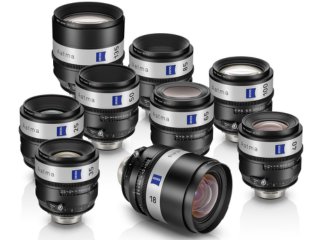- Home
- Science
- Science News
- NASA Is Exploring Solar Sails to Propel Spacecrafts Through Space in Future
NASA Is Exploring Solar Sails to Propel Spacecrafts Through Space in Future
Solar sails use pressure exerted by sunlight to move a vehicle across space, similar to how a sailboat uses wind to span the ocean.

Photo Credit: NASA
The propulsion method was selected for a Phase III study under NIAC program
Sails helped humans navigate the oceans and seas for hundreds of years before the first engines could be developed. But now sails may also help humans explore the cosmos. NASA is working towards tests that could demonstrate that solar sails could be a viable way for space-based travel. Solar sails are mirror-like devices mounted on spacecraft that capture the Sun's light. The captured light exerts radiation pressure on the sails and thus propels the spacecraft through the vacuum of space. Solar sails have been used successfully in the LightSail 2 built by Stellar Exploration, IKAROS spacecraft built by the Japanese Aerospace Exploration Agency, and NanoSail-D built by NASA.
But NASA will place a greater emphasis on developing and testing Diffractive Solar Sailing as a propulsion method for spacecraft. Unlike older solar sails that are very large and very thin, the new solar sailing technology will use the scientific phenomenon of diffraction (the property of light to spread out after it passes through a narrow opening) to improve manoeuvrability and power.
The propulsion method was selected for a Phase III study under the NASA Innovative Advanced Concepts (NIAC) program. Under this phase of the study, the space agency and its partners investigate how to transform NIAC concepts to be strategically useful for NASA, government agencies, and other commercial partners.
"As we venture farther out into the cosmos than ever before, we'll need innovative, cutting-edge technologies to drive our missions," NASA Administrator Bill Nelson was quoted as saying in a blog post on the US space agency's website. "The NASA Innovative Advanced Concepts program helps to unlock visionary ideas — like novel solar sails — and bring them closer to reality," added Nelson.
The new phase of the study will allow the research team to receive $2 million in grants for further exploration over the next two years for a demonstration mission.
The Diffractive Solar Sailing project is led by Amber Dubill of the Johns Hopkins University Applied Physics Laboratory in Laurel, Maryland.
Dubill said that diffractive solar sailing was a new spin on the lightsail concept that has been around for decades. While this technology has the potential to improve a wide range of mission architectures, it is most likely to have a significant impact on the heliophysics community's requirement for unique solar observation capabilities.
He added that with their combined expertise in optics, aerospace, traditional solar sails, and metamaterials, the researchers intend to provide scientists with unprecedented access to the Sun.
Get your daily dose of tech news, reviews, and insights, in under 80 characters on Gadgets 360 Turbo. Connect with fellow tech lovers on our Forum. Follow us on X, Facebook, WhatsApp, Threads and Google News for instant updates. Catch all the action on our YouTube channel.
Related Stories
- Samsung Galaxy Unpacked 2025
- ChatGPT
- Redmi Note 14 Pro+
- iPhone 16
- Apple Vision Pro
- Oneplus 12
- OnePlus Nord CE 3 Lite 5G
- iPhone 13
- Xiaomi 14 Pro
- Oppo Find N3
- Tecno Spark Go (2023)
- Realme V30
- Best Phones Under 25000
- Samsung Galaxy S24 Series
- Cryptocurrency
- iQoo 12
- Samsung Galaxy S24 Ultra
- Giottus
- Samsung Galaxy Z Flip 5
- Apple 'Scary Fast'
- Housefull 5
- GoPro Hero 12 Black Review
- Invincible Season 2
- JioGlass
- HD Ready TV
- Laptop Under 50000
- Smartwatch Under 10000
- Latest Mobile Phones
- Compare Phones
- OPPO K14x 5G
- Samsung Galaxy F70e 5G
- iQOO 15 Ultra
- OPPO A6v 5G
- OPPO A6i+ 5G
- Realme 16 5G
- Redmi Turbo 5
- Redmi Turbo 5 Max
- Asus Vivobook 16 (M1605NAQ)
- Asus Vivobook 15 (2026)
- Brave Ark 2-in-1
- Black Shark Gaming Tablet
- boAt Chrome Iris
- HMD Watch P1
- Haier H5E Series
- Acerpure Nitro Z Series 100-inch QLED TV
- Asus ROG Ally
- Nintendo Switch Lite
- Haier 1.6 Ton 5 Star Inverter Split AC (HSU19G-MZAID5BN-INV)
- Haier 1.6 Ton 5 Star Inverter Split AC (HSU19G-MZAIM5BN-INV)







![[Partner Content] OPPO Reno15 Series: AI Portrait Camera, Popout and First Compact Reno](https://www.gadgets360.com/static/mobile/images/spacer.png)








